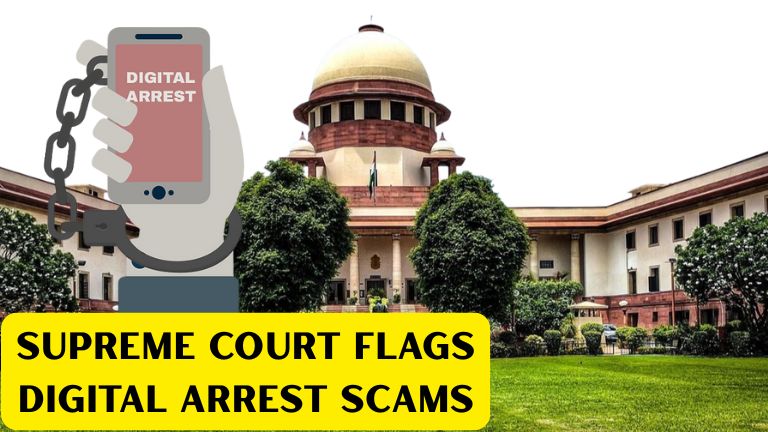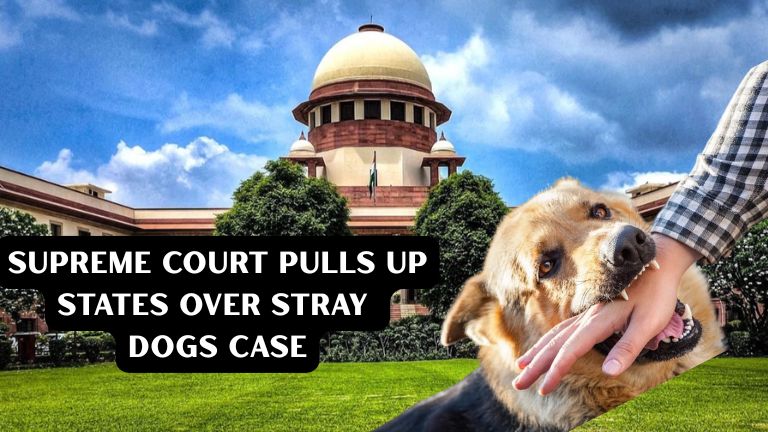@JUDGMENTTAG-ORDER
1. These two petitions u/s 482 Cr.PC have been filed for quashing the proceedings in CC No.99 of 1999 and CC No.104 of 1999 on the file of
Special Mobile Court, Kareemnagar.
2. The petitioner, who is the accused in both the cases, has been prosecuted for offence u/s 138 of Negotiable Instruments Act (for short Act) on
the ground that it is the Managing Director of the Company who issued the cheque and petitioner did not issue any cheque in his personal capacity
and as such the offence u/s 138 of the Act cannot be fastened to the petitioner.
3. The gist of the allegations in the complaint may be noted. The complainant has been running finance business under the name Om Sal Securities
and Investments Private Limited. The accused approached the complainant for finance and requested the plaintiff to pay Rs.6,40,000/-. The
complainant paid to the accused a sum of Rs.6,00,000/- through a demand draft and Rs.40,000/- in cash on 22-11-1996. The accused executed
a memorandum of understanding in favour of the complainant and as per the terms of agreements he was to pay interest at 24% per annum
quarterly. The accused agreed to pay entire amount within six months. The accused after receiving the amount had issued four blank cheques for
Rs.6,00,000/-. The accused also agreed to issue share certificates. The complainant after waiting for the agreed period of six months demanded
the accused for payment of the amount. The accused issued two cheques for a sum of Rs. 1,00,0007-each, one cheque for Rs.1,40,000/- and
another cheque for Rs.3,00,000/- towards discharge of his debt.
4. The complainant presented two cheques of Rs. 1,00,000/- each for collection in his Bank, namely, Syndicate Bank at Kareemnagar which were
sent for collection of the amount to Andhra Bank, Masab Tank, Hyderabad on which they were drawn. The cheques were returned on 31-7-1998
with an endorsement that payment was stopped by the drawer. Accordingly, the Masab Tank Branch issued relumed,, memo on 28-7-1998 with
the above endorsement. It is further stated in the complaint that within 15 days from the date of receipt of this information regarding the return of
the cheques, the complainant got issued a statutory notice through his advocate to the accused on 14-8-1998 calling upon the accused to pay the
amount of Rs.2,00,000/-due on the dishonoured cheques within 15 days from the date of receipt of notice. The accused received the said notice
and sent his reply notice through G. Ancttidam, Advocate on 31-8-1998 but did not pay the amount covered by the cheques. Thus, the allegation
is that the accused issued the cheques to the complainant with an intention to deliberately dishonoured the cheques by issuing the stop payment
direction to the Bank. Thus, the accused is said to have committed the offence u/s 138 of the Negotiable Instruments Act.
5. The contentions raised in this petition for quashing the proceedings are two fold. Firstly, it is contended by the learned Counsel for the petitioner
that the cheque was issued by Vijaya Industrial Gas Limited by its Managing Director. There is no mention in the complaint that it was issued at the
instance of the accused/ petitioner herein. In the complaint, the said Company Vijaya Industrial Gas Limited has not been shown as accused and
the petitioner is the solitary accused in that complaint and he cannot be liable for prosecution u/s 138 of the Negotiable Instruments Act.
6. The next contention canvassed by the learned Counsel for the petitioner is that it is not a case where the cheques were returned unpaid on the
ground of insufficiency of funds, but the return of the cheques was on the ground of instructions to the bank not to pay by the petitioner. Therefore,
it is contended that such nonpayment of cheques does not constitute an offence u/s 138 of the Act. But this question has been answered by three
Judge Bench of the Supreme Court in the case of M/S Modi Cements Limited Vs. Shri Kuchil Kumar Nandi, . The Supreme Court overruled the
earlier judgments and held that even if a cheque is returned unpaid on account of the reason that the drawer has, in the meanwhile, instructed the
bank not to pay, the dishonour of such cheques would nevertheless attract the provisions of Section 138 of the Act. The following observation in
Para 18 are significant:
The aforesaid propositions in both these reported judgments in our considered view, with great respect are contrary to the spirit and object of
Sections 138 and 139 of Act. If we are to accept this proposition it will make Section 138 a dead letter, for, by giving instructions to the Bank to
stop payment immediately after issuing a cheque against a debt or liability the drawer can easily get rid of the penal consequences notwithstanding
the fact that a deemed offence was committed.
In view of this, the contention that where cheque is dishonoured because of the instructions of the drawer to stop payment would not attract
Section 138 of the Act cannot be countenanced if the other requirements of Section 138 of the Act are satisfied.
7. The contention of the learned Counsel for the petitioner is that even if the petitioner had signed the cheque, it was as the Managing Director of
the said company, Vijaya Industrial Gasses Limited and not in his personal capacity and as such he cannot be prosecuted in his personal capacity.
8. The learned Counsel for the respondent contends that even if the petitioner has issued the cheque as Managing Director of the said Company,
he can be criminally liable, at any rate, as Managing Director of that Company.
9. What is pertinent to note in this case is that the Company in question is Tiot an accused and it is an individual who is an accused in this case,
Obviously, Section 141 of the Negotiable Instruments Act (for short ''the Act'') contemplates that if a person committing the offence is a Company,
every person at the time the offence was committed, was ''in charge of, and was responsible to the company'' for the conduct of the business of the
Company as well as the Company shall be deemed to be guilty of the offence and shall be liable to be proceeded against accordingly. When the
Company is not itself proceeded against for an offence u/s 138 of the Negotiable Instruments Act, and in the absence of any allegation that the
accused was in charge of and was responsible to the Company, the question of proceeding against any Director of the Company would not arise.
10. What is significant in this case is that apart from the fact that the Company itself is not shown as an accused, the solitary accused in this case
has not been shown or described as Managing Director of the Company, namely, Vijaya Industrial Gasses Limited. All the allegations in the
complaint, a copy of which has been filed with the petition, show that they have been made against the solitary accused-petitioner herein in his
individual capacity. But, as seen from the cheque itself a photo-state copy of which has been filed, it was issued by the Company, namely, Vijaya
Industrial Gasses Limited as evident from the words ""for Vijaya Industrial Gasses Limited"" above the signature and the words ""Managing Director
below the signature. There can be no manner of doubt that the cheque was issued on behalf of Vijaya Industrial Gasses Limited. It was not issued
by the accused in his personal capacity on his personal account.
11. Section 138 of the Act contemplates that for commission of an offence u/s 138 of the Negotiable Instruments Act in respect of a cheque which
was returned unpaid on the ground of insufficiency of funds etc., the cheque must'' have been issued by the accused ""on an account maintained by
him with a Banker"".
12. As stated above, in this case, the accused petitioner is sought to be prosecuted in his individual capacity. He has not even been described as
Managing Director of the Company. Even assuming that he has signed the cheque in question, inasmuch as the cheque was drawn not on an
account maintained by him with a Banker but was issued on an account maintained by the Company, namely, Vijaya Industrial Gasses Limited, the
requirement of Section 138 of the Act cannot be said to have been complied with.
13. If the accused was prosecuted in his capacity as a Managing Director of the Company, then, the cheque drawn by him on an account
maintained by the Company would have satisfied the requirement of Section 138 of the Act but as the accused is said to have been proceeded
against for an offence u/s 138 of the Act in his individual capacity and inasmuch as the cheque dishonoured for insufficiency of funds was drawn on
the account maintained by the Company, namely, Vijaya Industrial Gasses Limited and not by the accused petitioner herein, no offence can be said
to have been committed u/s 138 of the Act. The requirement of Section 138 of the Act is that for fastening criminal liability on the accused, the
cheque which was dishonoured for insufficiency of funds etc., must have been drawn on an account maintained by the accused. The mere fact tli''at
the cheque signed by the accused in his capacity as a ""Managing Director"" of the Company would in the normal course be honoured by the Bank
to which it was presented does not satisfy the statutory requirement of Section 138 of the Act.
14. Section 138 of the Act exposes the person who has drawn the cheque and which has been returned for insufficiency of funds to criminal
liability. The provision, therefore, must be construed strictly. However, such a strict construction should not result in defeating the very purpose for
which the provision has been enacted as held by the Supreme Court in the case of NEPC Micon Limited and Others Vs. Magma Leasing Limited,
. At the same time, statutory provisions creating penal liability cannot be stretched too far to embrace the persons and situations patently excluded
from its purview as deduced from clear and unequivocal language used in the provision.
15. In this case, Section 138 of the Act clearly postulates that the cheque returned for insufficiency of funds should have been drawn by a person
on an account maintained by him. It will be doing violence to the language of the statute if Section 138 of the Act is interpreted to mean that even if
a person draws a cheque on an account not maintained by him, he shall be liable if the cheque is returned for insufficiency of funds. Such an
interpretation will lead to absurd and wholly unintended, results. In Banking practice a person holding an account can nominate any person as a
mandate holder who can operate the account on his behalf. If such mandate holder draws a cheque in respect of his personal liabilities on the
account maintained by principal account holder to whom the funds really belong and in.. which the mandate holder has no title to the funds, such a
mandate holder will be liable u/s 138 of the Act even if the original account holder withdraws the amount or does any other act which leads to
insufficiency of funds in that account. Such cannot be the intention of the Legislature in enacting Section 135 of the Act.
16. In view of this, it is obvious that the petitioner who is he solitary accused in these cases cannot be proceeded against u/s 138 of the Act.
17. In the result, the Criminal Petition Nos.2561 and 2562 of 1999 are allowed and the proceedings in CC Nos 104 and 99 of 1999 on the file of
Special Mobile Court, Karimnagar are quashed in respect of offence u/s 138 of the Negotiable Instruments Act.

